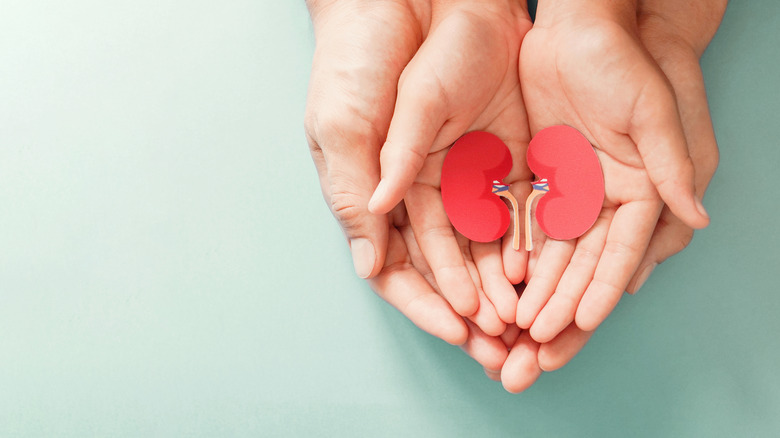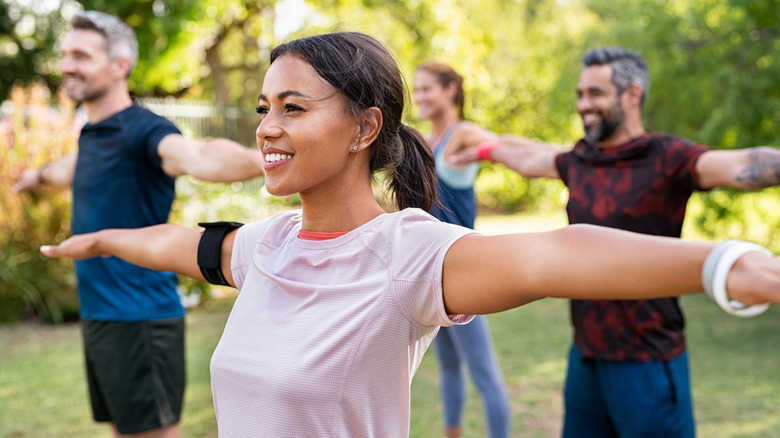Is Your Favorite Energy Drink Damaging Your Kidneys?
Energy drinks are popular beverages consumed by millions of people worldwide. One study by the European Journal of Public Health showed that 15.8 % of young adults in Denmark consume energy drinks weekly. Energy drinks are marketed as beverages that can improve mental and physical performance and are often consumed by people who are looking for a quick energy boost or who want to stay alert and focused.
The exact ingredients in energy drinks can vary, but most generally contain caffeine, a stimulant that can improve alertness and focus, says Healthline. According to Healthline, the caffeine content of energy drinks can vary, but most contain about 142 to 160 mg of caffeine per 443 milliliters. Furthermore, some energy drinks also contain taurine, which is an amino acid that is found naturally in the body. In addition to sugar, which contributes to the calories and overall sweetness of the drink, many energy drinks also contain B vitamins for additional energy (via Healthline).
In short, energy drinks are popular among young adults and are often consumed as a way to stay alert and focused. However, there is some concern about the safety of energy drinks — particularly if consumed in excess.
Do energy drinks damage the kidneys?
As mentioned, one of the main ingredients in energy drinks is caffeine, which is a stimulant. Too much caffeine can increase urine production (via Healthline). According to a 2021 study published in the journal Scientific Reports, increased caffeine intake was associated with reduced renal function. It is important to note, however, that moderate caffeine intake is generally considered safe for most people. The American Heart Association recommends that adults consume no more than 400 mg of caffeine per day, which is equivalent to about four cups of coffee.
It is also important to note that energy drinks may contain other ingredients (like sugar and artificial sweeteners) that may be harmful to health if consumed in excess, says Healthline. Too much sugar intake can cause high blood sugar and related conditions like type 2 diabetes.
Besides the kidneys, the consumption of energy drinks may also lead to various other health issues. According to the Centers for Disease Control and Prevention (CDC), emergencies related to the consumption of energy drinks affected 1,499 young adults in 2011. The main concerns included dehydration, anxiety, heart issues, and insomnia. It is generally best to consume these beverages in moderation — around 16 ounces, says Healthline. It might also help to drink plenty of water to stay hydrated. If you have any concerns about the effects of energy drinks on your health, it is a good idea to speak with a healthcare provider.
Best ways to boost energy naturally
There are many ways to boost energy naturally without relying on energy drinks or other artificial sources of caffeine and other stimulants. One of the most important things you can do is to get enough sleep, explains Harvard Medical School. Adults should aim for 7 to 9 hours of sleep per night, per the CDC.
It's also important to watch your diet. A diet that is rich in fruits, vegetables, whole grains, and lean proteins can also provide sustained energy throughout the day, according to WebMD. Stick to smart carbs and avoid sugary and processed foods, which can cause spikes and crashes in energy levels.
Regular physical activity can also help to boost energy levels and improve overall physical and mental well-being, per Mayo Clinic. However, note that taking breaks to relax and recharge can help increase energy levels, according to Harvard Medical School. Some of Harvard's recommended relaxation techniques include deep breathing, meditation, or yoga.
It is important to note that everyone is different, and what works for one person may not work for another. It is a good idea to experiment and find what works best for you to naturally boost your energy levels. If you have persistent fatigue or low energy levels that are affecting your quality of life, it's best to speak to your doctor.



